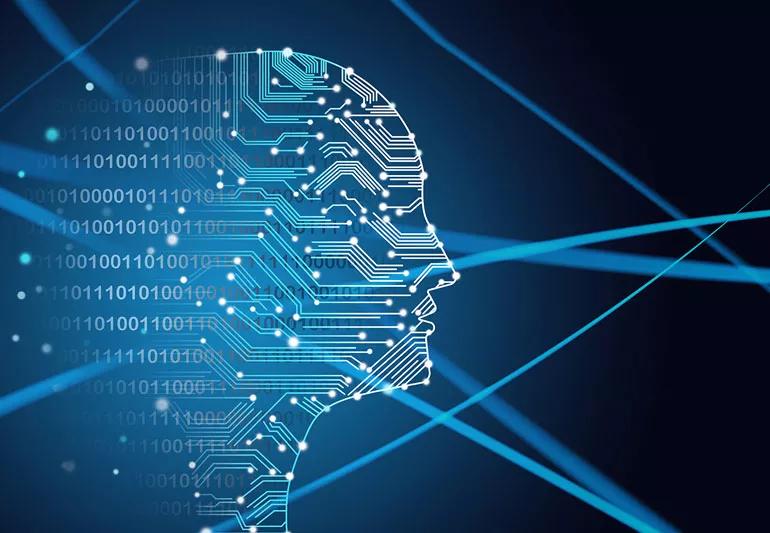Advertisement
Artificial intelligence systems can analyze data in milliseconds to aid decision-making

We’ve come to rely on computers in many aspects of our lives — from scheduling appointments to dictating a text to finding us the quickest driving route home. So why not employ them to solve the problem of your bad back?
Advertisement
Cleveland Clinic is a non-profit academic medical center. Advertising on our site helps support our mission. We do not endorse non-Cleveland Clinic products or services. Policy
If you consult multiple doctors about your back pain, it’s possible you’ll get a different recommendation from each one. One doctor might send you to physical therapy, while another recommends a steroid shot. Yet another might want to perform surgery.
“There’s tremendous variation in how spine-related problems are treated,” explains Thomas Mroz, MD, Director of the Center for Spine Health.
In fact, one study found a 75% disagreement among surgeons on the best approach to treat low back pain.
Back pain is an extremely common symptom, but it also can be tricky to diagnose and treat. Why? The spine is a complicated area of the body that’s susceptible to numerous conditions and diseases. There’s structural issues, like herniated disks, disk degeneration, spinal stenosis and osteoarthritis, but other factors are at work too.
“Two people can have identical-looking imaging studies but they’re different in terms of pain and function,” Dr. Mroz says. For example, one person might be very fit and have little pain, while another is deconditioned with weak muscles and be in terrible pain. “There are many variables that influence back pain.”
There’s also a wealth of data in medical records and the research literature about the characteristics of individual patients and their experiences with different treatments.
“When I’m in an exam room with a patient, it’s difficult to reconcile the hundreds of data points in the records that influence how a patient will perceive their outcome and to render a truly informed decision for that patient,” Dr. Mroz says. The solution? He believes it’s artificial intelligence, or AI.
Computing capacity has grown exponentially over the past several decades. It’s increasingly possible to harness those capabilities for greater precision in medical decision-making.
Toward that end, Dr. Mroz and his colleagues are developing an AI system for clinical decision-making in spine medicine.
With AI, also called machine learning, computers can analyze large volumes of data from multiple sources in the medical record in milliseconds to identify what is and what isn’t relevant to a particular person. The ability of the computer to to this far exceeds that of any human.
“This increases the changes of a more accurate diagnosis and allows us to choose the best treatment with the highest probability of a good outcome,” Dr. Mroz says.
The work done on the AI system so far allows doctors to predict how satisfied a patient will be with a particular treatment one to two years down the road. Dr. Mroz and his colleagues are collecting more data on spine patients and continuing to refine the system.
“The ultimate goal is to make patients better with the most appropriate treatment and to use surgery only for the right people,” he says.
Not only will this provide better care. It has the potential to prevent wasteful spending. Currently, about $110 billion is spent every year for back pain — and that’s just direct healthcare costs.
This article first appeared in Cleveland Clinic Arthritis Advisor.
Advertisement
Learn more about our editorial process.
Advertisement

It’s always a good idea to let a healthcare provider know about any back pain you’re experiencing, especially if it results from trauma or persists longer than three months

From physical and biofeedback therapy to nerve ablations and blocks, there are many nonsurgical options for managing back pain

Rest, physical therapy, acupuncture and nerve blocks are just a few ways to find relief

Get moving, use cold packs, and try yoga and stretches to ease back pain

Back pain often has multiple causes, only some of which an epidural steroid injection can relieve

The short answer from a spine specialist

The short answer from a pain specialist

A little know-how can prevent aching — or injury

Focus on your body’s metabolic set point by eating healthy foods, making exercise a part of your routine and reducing stress

PFAS chemicals may make life easier — but they aren’t always so easy on the human body

While there’s little risk in trying this hair care treatment, there isn’t much science to back up the claims